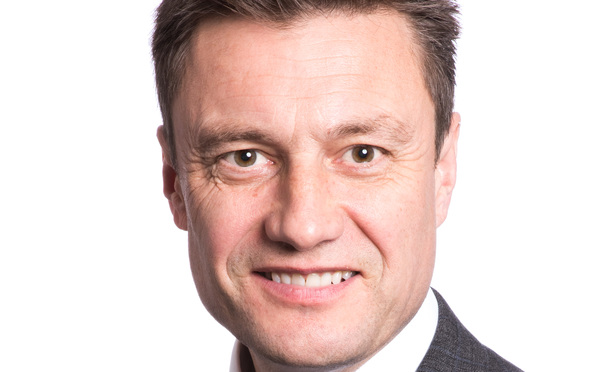Top UK firms consider setting ethnic diversity targets for the first time
Eversheds Sutherland, BLP, Clydes and Ashurst among those considering implementing targets to boost BAME representation
November 14, 2017 at 07:44 AM
6 minute read
A host of leading UK law firms are weighing up introducing ethnic diversity targets for the first time, as addressing the dearth of black, Asian and minority ethnic (BAME) lawyers rises up the agenda.
Seven of the UK's 20 largest firms by revenue are actively considering ushering in targets: Eversheds Sutherland, Berwin Leighton Paisner (BLP), Ashurst, Gowling WLG, Pinsent Masons, CMS and Clyde & Co.
Norton Rose Fulbright is currently the only top 20 firm that already has targets in this area – having introduced and already exceeded a 25% BAME target at trainee level.
Eversheds Sutherland is considering introducing BAME targets at trainee, associate and partner level in early 2018 as part of a wider overhaul of its diversity strategy. This overhaul will also see the firm refresh its gender diversity targets and introduce targets for LGBT representation for the first time.
Recent research by Legal Week found the firm currently has one of the lowest proportions of UK BAME partners in the top 20, standing at just 4.6% for partners, 10% for associates and rising to 17% for trainees.
Eversheds co-CEO Lee Ranson said of the broader diversity plans: "We are trying to encourage people to stop looking at diversity from a silo perspective but rather as a single strategy of inclusion with certain key elements. The headline targets [for BAME, gender and LGBT] are likely to focus on our lawyers and partners and to take account of global regional realities."
The targets will not only take into account recruitment but will also look at reward, promotion and client account leadership responsibilities.
Ranson added: "Where we set headline targets, these will be supported by commitments across the whole spectrum. Sometimes trainees are selected as they are the easiest numbers to move. Some areas will no doubt prove more challenging and will take longer for us to see the progress we desire."
BLP's planned ethnicity targets are also intended to look at both recruitment and promotion. The firm is discussing an initial target for trainee hires, with a view to extending this out to associate and partner representation at a later date. Currently, 17% of its UK trainees are from BAME backgrounds, with the equivalent figure standing at 13% for associates and 10% for partners – the second highest within the UK top 20 (see table below).
 BLP City disputes partner Segun Osuntokun (pictured) said: "We are looking at ethnicity targets, particularly at trainee level. We also want to look at the progress ethnic minorities are making from trainee through to associate and partner. It is a live conversation – the social inclusion and ethnicity group, which I co-chair, is looking to put together a paper and we will be discussing this at board level [this year or in 2018].
BLP City disputes partner Segun Osuntokun (pictured) said: "We are looking at ethnicity targets, particularly at trainee level. We also want to look at the progress ethnic minorities are making from trainee through to associate and partner. It is a live conversation – the social inclusion and ethnicity group, which I co-chair, is looking to put together a paper and we will be discussing this at board level [this year or in 2018].
"I think that because BAME targets have not had as much prominence as gender targets, it is more realistic to start at trainee level and work your way up. Eventually, we wouldn't just look at the attraction of trainees but also their retention. In years to come we would want to see targets at all levels."
He added that the firm will also be stepping up its efforts to recruit from non-Russell Group universities and reaching out to more candidates through various student university societies.
Gowling, meanwhile, set up a working group in London last month to address areas such as BAME representation and is currently considering introducing targets in this area, with Ashurst also planning to bring in targets next year.
To date, the issue of ethnic diversity within leading law firms has failed to receive anywhere near as much attention as gender diversity, where, despite efforts, firms are still struggling to retain women, with most top firms' partnerships still below the 30% level.
Legal Week's research highlighted the lack of BAME representation within top firms compared to the wider UK population.
Within the UK top 20, Ashurst has the highest percentage of BAME partners in the UK at 11%, with BLP second on 10% and Simmons & Simmons third on 9.5%.
On average, just 6% of partners across the UK top 20 are from minority ethnic backgrounds. This compares with about 13% of the UK population at the time of the last census, a figure which rises to around 40% in London, where the majority of partners at major UK law firms are based.
Within the top 20, Clyde & Co is the only firm without any BAME representation within its UK partnership.
Andy Dent, global head of corporate responsibility and inclusion at Clydes, said: "At a global level our partnership is increasingly diverse but our UK BAME partner figures are clearly not where we want them to be.
"It is an industry-wide issue and one way we are tackling it is to work harder at improving the diversity of our trainee intake. They are the future partners of the firm. We are also making concerted efforts to strengthen the diversity of our current partnership through both our internal promotions and lateral hiring activity."
Freshfields Bruckhaus Deringer, Bird & Bird and Hogan Lovells declined to comment on whether they have BAME targets or plans to introduce them. Bird & Bird and Hogan Lovells also declined to provide any diversity statistics.
Percentage of UK BAME partners at the top 20 UK firms:
- Ashurst: 11%
- Berwin Leighton Paisner: 10%
- Simmons & Simmons: 9.5%
- Allen & Overy: 9%
- Linklaters: 8.9%*
- Taylor Wessing: 8.8%
- Norton Rose Fulbright: 8%
- DLA Piper: 7%
- Slaughter and May: 5.7%
- Clifford Chance: 5.1%
- Herbert Smith Freehills: 5%
- CMS UK: 5%
- Pinsent Masons: 5%
- Irwin Mitchell: 5%
- Gowling WLG: 4.7%
- Eversheds Sutherland: 4.6%
- Freshfields Bruckhaus Deringer: 3.4%*
- Clyde & Co: 0%
*Both Linklaters and Freshfields have yet to report 2017 figures so the data for these firms is for 2016.
-
 Diversity is one of the headline subjects to be discussed at the LegalWeek Connect event later this month, with a big-name line-up of speakers gathering on 29-30 November at London's Institution of Engineering and Technology to talk about these issues and more. Click here for all the details.
Diversity is one of the headline subjects to be discussed at the LegalWeek Connect event later this month, with a big-name line-up of speakers gathering on 29-30 November at London's Institution of Engineering and Technology to talk about these issues and more. Click here for all the details.
This content has been archived. It is available through our partners, LexisNexis® and Bloomberg Law.
To view this content, please continue to their sites.
Not a Lexis Subscriber?
Subscribe Now
Not a Bloomberg Law Subscriber?
Subscribe Now
NOT FOR REPRINT
© 2025 ALM Global, LLC, All Rights Reserved. Request academic re-use from www.copyright.com. All other uses, submit a request to [email protected]. For more information visit Asset & Logo Licensing.
You Might Like
View All

Some Elite Law Firms Are Growing Equity Partner Ranks Faster Than Others
4 minute read
KPMG's Bid To Practice Law in US On Hold As Arizona Court Exercises Caution
Trending Stories
- 1Counterpoint: FLA Is Committed To the Success of Legal Professionals
- 2Pa. Superior Court Rules Pizza Chain Liable for Franchisee Driver's Crash
- 3New FCC Chair Hires Section 230 Critic as General Counsel
- 4Sylvia Favretto Elevated to Mysten Labs’ General Counsel
- 5Vanessa Roberts Avery Rejoins McCarter & English
Who Got The Work
J. Brugh Lower of Gibbons has entered an appearance for industrial equipment supplier Devco Corporation in a pending trademark infringement lawsuit. The suit, accusing the defendant of selling knock-off Graco products, was filed Dec. 18 in New Jersey District Court by Rivkin Radler on behalf of Graco Inc. and Graco Minnesota. The case, assigned to U.S. District Judge Zahid N. Quraishi, is 3:24-cv-11294, Graco Inc. et al v. Devco Corporation.
Who Got The Work
Rebecca Maller-Stein and Kent A. Yalowitz of Arnold & Porter Kaye Scholer have entered their appearances for Hanaco Venture Capital and its executives, Lior Prosor and David Frankel, in a pending securities lawsuit. The action, filed on Dec. 24 in New York Southern District Court by Zell, Aron & Co. on behalf of Goldeneye Advisors, accuses the defendants of negligently and fraudulently managing the plaintiff's $1 million investment. The case, assigned to U.S. District Judge Vernon S. Broderick, is 1:24-cv-09918, Goldeneye Advisors, LLC v. Hanaco Venture Capital, Ltd. et al.
Who Got The Work
Attorneys from A&O Shearman has stepped in as defense counsel for Toronto-Dominion Bank and other defendants in a pending securities class action. The suit, filed Dec. 11 in New York Southern District Court by Bleichmar Fonti & Auld, accuses the defendants of concealing the bank's 'pervasive' deficiencies in regards to its compliance with the Bank Secrecy Act and the quality of its anti-money laundering controls. The case, assigned to U.S. District Judge Arun Subramanian, is 1:24-cv-09445, Gonzalez v. The Toronto-Dominion Bank et al.
Who Got The Work
Crown Castle International, a Pennsylvania company providing shared communications infrastructure, has turned to Luke D. Wolf of Gordon Rees Scully Mansukhani to fend off a pending breach-of-contract lawsuit. The court action, filed Nov. 25 in Michigan Eastern District Court by Hooper Hathaway PC on behalf of The Town Residences LLC, accuses Crown Castle of failing to transfer approximately $30,000 in utility payments from T-Mobile in breach of a roof-top lease and assignment agreement. The case, assigned to U.S. District Judge Susan K. Declercq, is 2:24-cv-13131, The Town Residences LLC v. T-Mobile US, Inc. et al.
Who Got The Work
Wilfred P. Coronato and Daniel M. Schwartz of McCarter & English have stepped in as defense counsel to Electrolux Home Products Inc. in a pending product liability lawsuit. The court action, filed Nov. 26 in New York Eastern District Court by Poulos Lopiccolo PC and Nagel Rice LLP on behalf of David Stern, alleges that the defendant's refrigerators’ drawers and shelving repeatedly break and fall apart within months after purchase. The case, assigned to U.S. District Judge Joan M. Azrack, is 2:24-cv-08204, Stern v. Electrolux Home Products, Inc.
Featured Firms
Law Offices of Gary Martin Hays & Associates, P.C.
(470) 294-1674
Law Offices of Mark E. Salomone
(857) 444-6468
Smith & Hassler
(713) 739-1250











